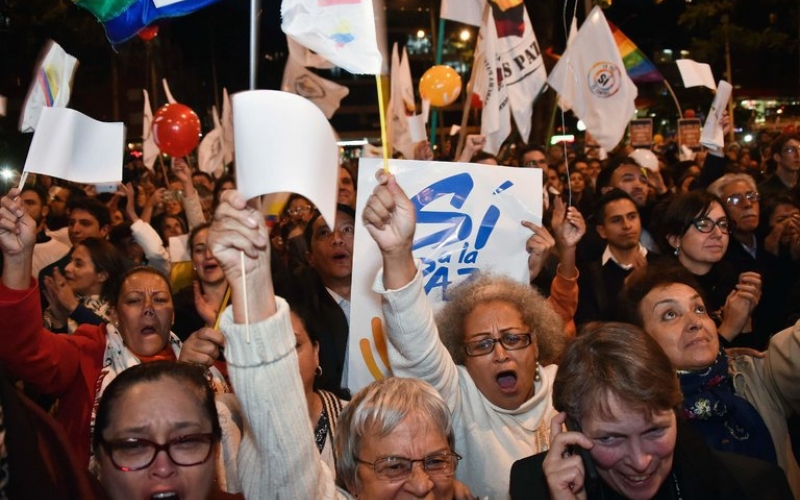#GlobalJustice Weekly – Colombia’s peace deal: Will it bring justice?

Colombia’s peace deal: will it bring justice?
The international community has broadly welcomed the long-awaited peace agreement between the Colombian government and the FARC rebel group, which promises an end to over 50 years of brutal conflict. But will the deal ensure Colombia fulfills its obligations as an International Criminal Court (ICC) member state to investigate and prosecute perpetrators of grave crimes?
Alleged war crimes and crimes against humanity by government forces, armed guerrilla groups, and paramilitaries have been the subject of an ICC preliminary examination since 2004, intended to determine whether a full investigation is warranted. The ICC prosecutor has been monitoring the peace process to ensure the delivery of genuine justice under the Rome Statute principle of complementarity, which requires authorities in ICC member states to investigate and prosecute grave crimes in the first instance.
In December 2015, negotiators published a 75-point plan detailing how justice for grave crimes committed during the conflict would be implemented as part of the wider peace agreement. A Special Jurisdiction for Peace is to be established to prosecute conflict-related grave crimes committed by all sides. While explicitly excluding amnesty for war crimes and crimes against humanity, the agreement envisages reduced and/or alternative sentences, such as house arrest, for perpetrators who confess to crimes and contribute to establishing truth.
The issue of sentencing has proven contentious. Human Rights Watch this week said the agreement was flawed and could lead to impunity for those responsible for human rights abuses and war crimes. Amnesty International said it had serious doubts about whether the deal will effectively guarantee victims’ rights to truth, justice, and reparations in line with international law and standards.
However, the Colombian Commission of Jurists welcomed the deal. Colombian human rights group HUMANAS meanwhile called on “the men and women of this country to say ‘yes’ to peace,” when the agreement is put to popular referendum in October.
The government and the FARC have proposed the participation of Pope Francis, UN Secretary-General Ban Ki-Moon, the Criminal Chamber of Colombia’s Supreme Court, the International Center for Transitional Justice, and the Standing Committee of the State University System when selecting judges for Colombia’s special peace tribunals.
Further reactions
On the Verge of Peace: Colombia Reaches Final Agreement with the FARC (Crisis Group)
Security Council reiterates commitment to Colombian peace process
UNHCR welcomes definitive peace agreement in Colombia
A peace agreement and challenges ahead (Chatham House)
Foreign Secretary statement on the Colombian peace process (United Kingdom)
Background reading
Colombia: Will peace accord deliver justice for grave crimes?
Civil society on Colombia’s peace/justice deal
Victims’ voices heard in Colombia peace talks
International Criminal Court investigations
Democratic Republic of Congo: Lawyer representing Ntganda talks challenges in recruiting investigators and preparing for ICC trial
Mali: Destruction of cultural property trial at ICC shows need for broader accountability; judgment set for September 27
Uganda: United States imposes new financial sanctions on Joseph Kony’s LRA commander sons
ICC preliminary examinations
Palestine: Israeli army closes file on 2014 Gaza school shelling while campaign attacksagainst prominent Palestinian human rights organizations continue
Nigeria: United Nations World Health Organization reveals urgent health problems among populations in areas formerly held by Boko Haram
Ukraine: New information of alleged enforced disappearances and secret detention by Ukraine’s security services
Campaign for Global Justice
Human Rights Watch reports on South Sudan’s suspected rapists must be brought to justice
Timbuktu residents protested the destruction of historic buildings
Executions in Iraq do not equate to real justice for Speicher Massacre
Around the world
Israeli air strikes pound Gaza after rocket attack
Amnesty International reiterates executions in Iraq will not eliminate security threats
Philippine’s president Duterte can be held liable under ICC
Can the law correct the colonial past? 100 Years after Balfour Declaration, Palestiniansthreaten to Sue
